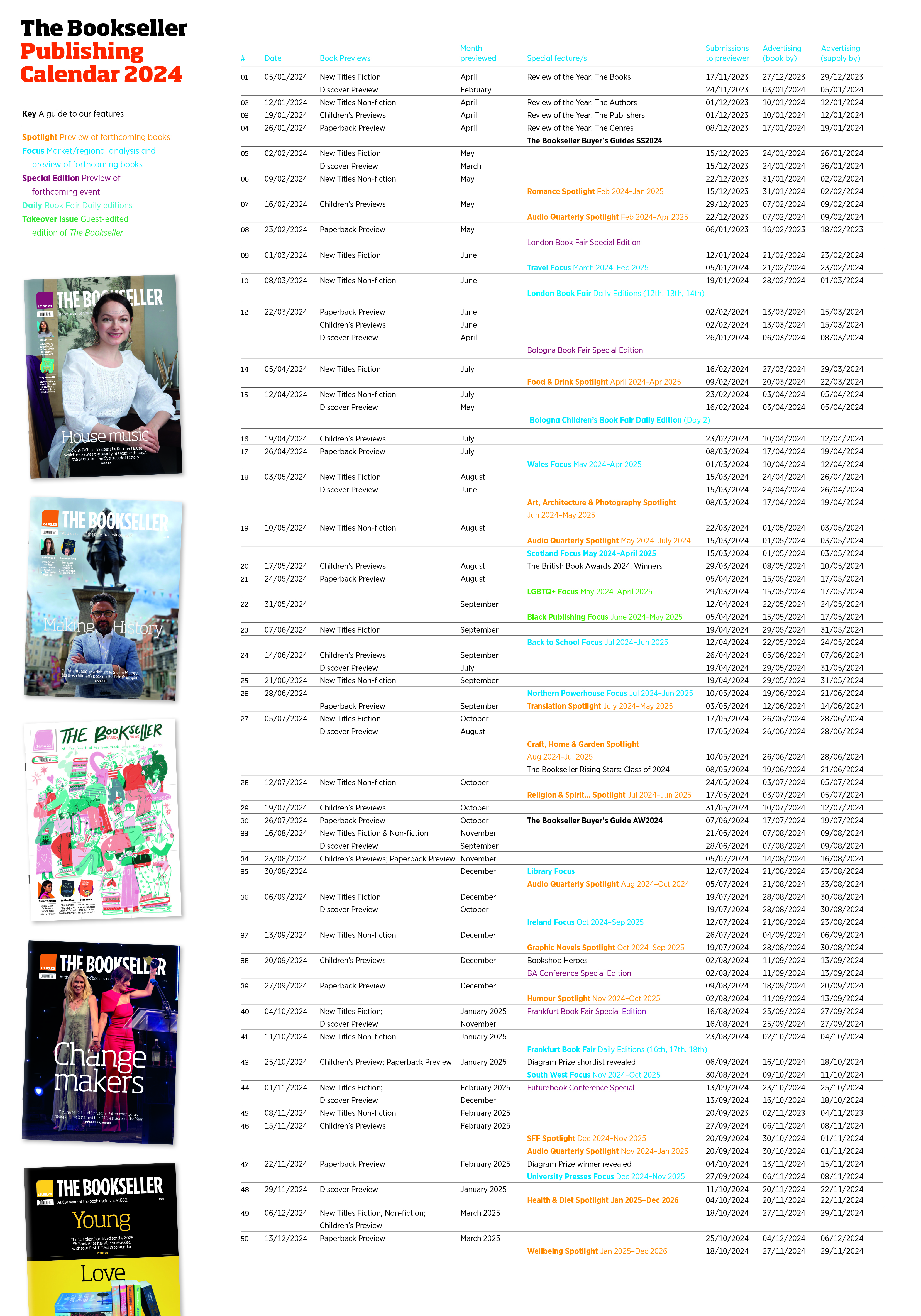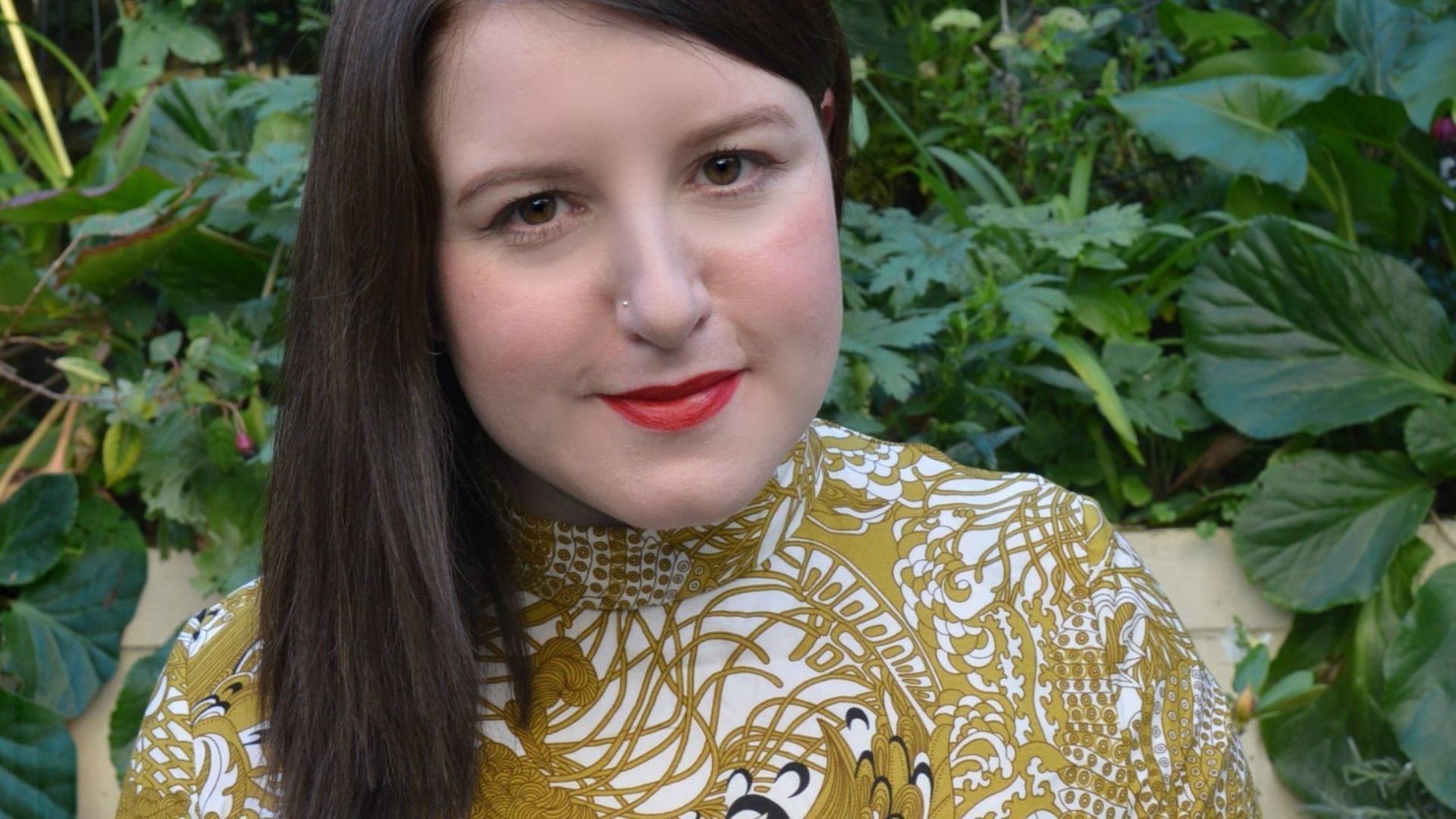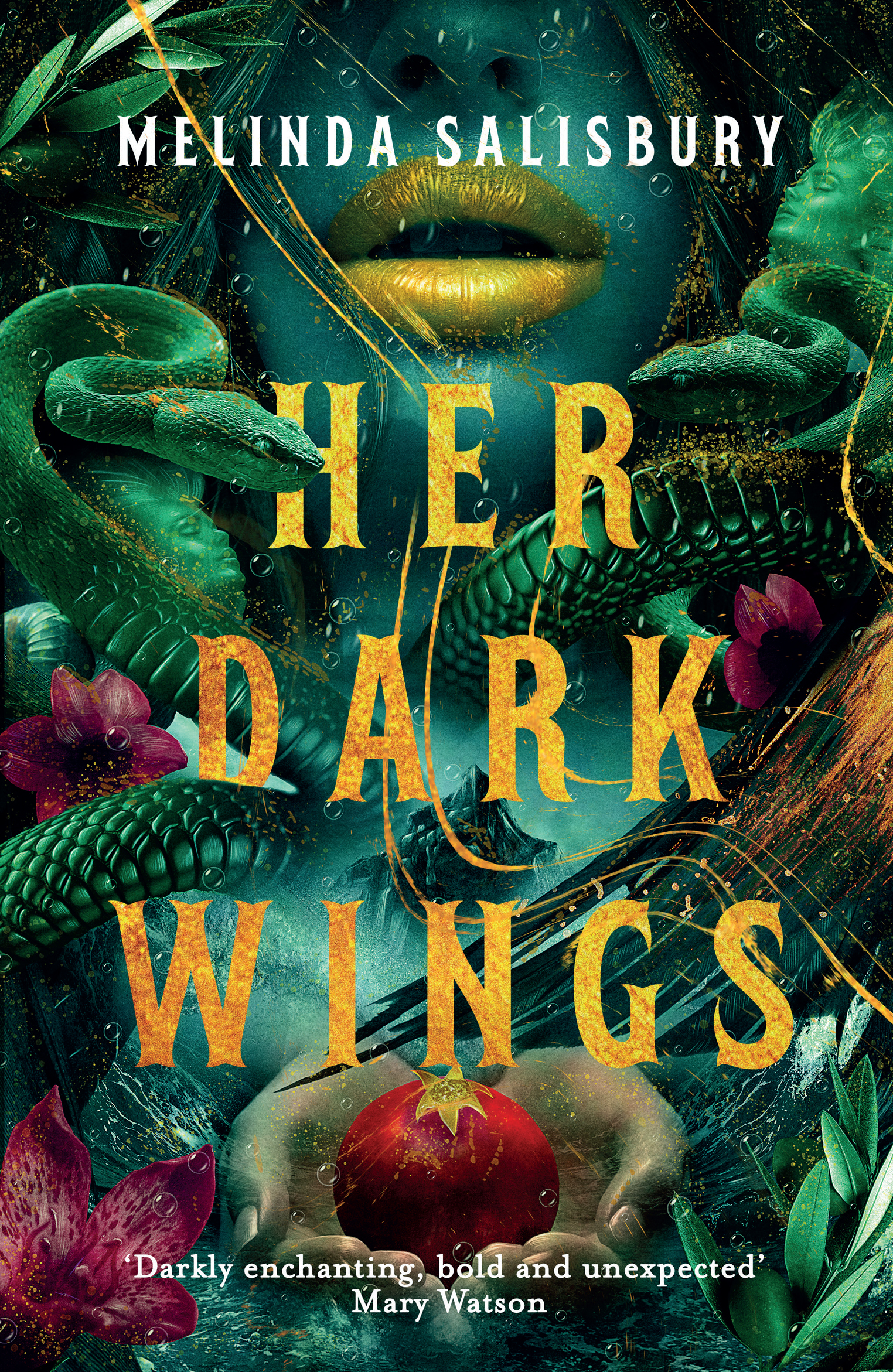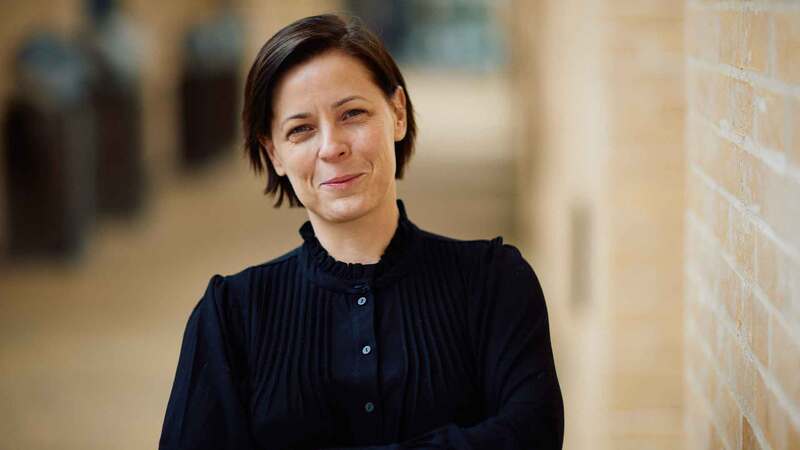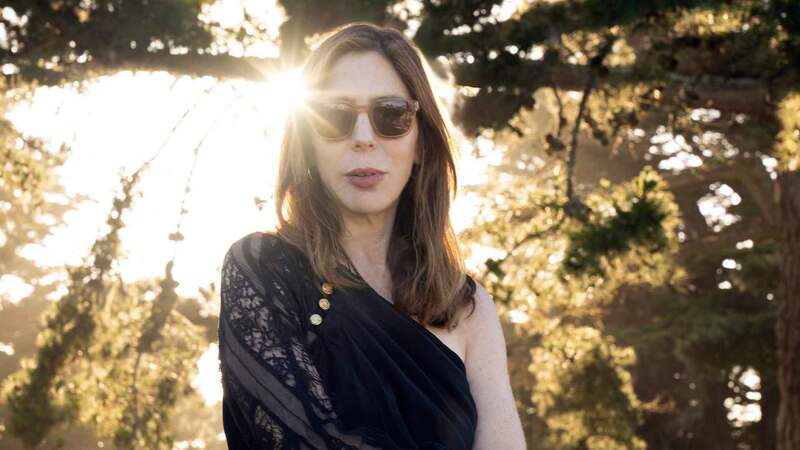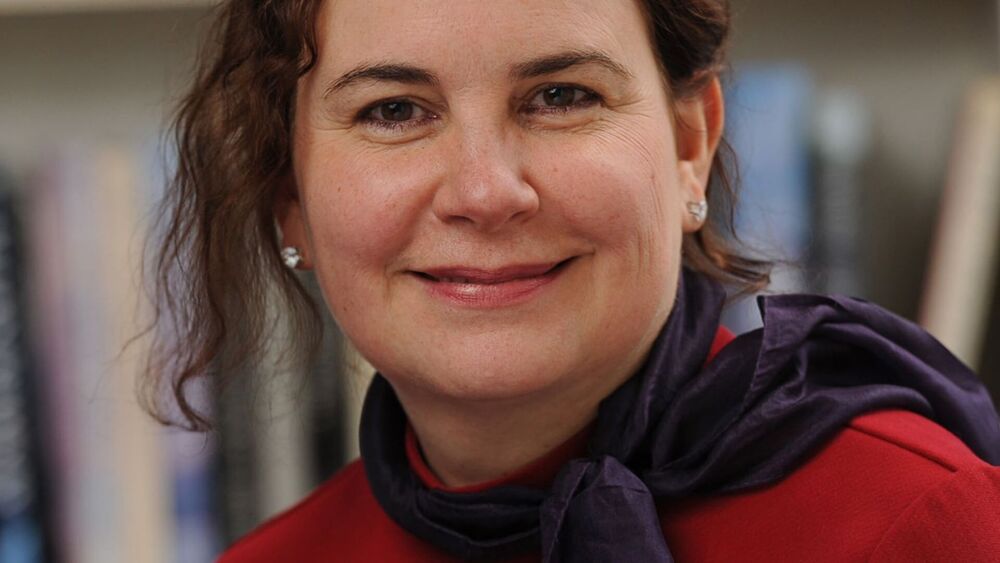You are viewing your 1 free article this month. Login to read more articles.
YA Book Prize shortlist: Melinda Salisbury in conversation about Her Dark Wings
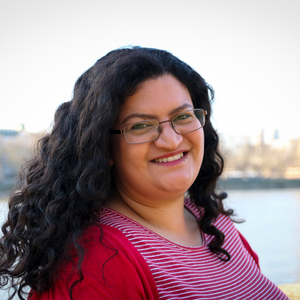 Caroline Carpenter
Caroline CarpenterCaroline is deputy features editor at The Bookseller and chair of the YA Book Prize, as well as being a co-host of children's book radio ...more
Melinda Salisbury answers our questions about her novel Her Dark Wings (David Fickling Books), inspired by the Ancient Greek myth of Persephone, which has been shortlisted for the YA Book Prize 2023.

Caroline is deputy features editor at The Bookseller and chair of the YA Book Prize, as well as being a co-host of children's book radio ...more
How would you describe your book to someone who hasn’t read it?
It’s a loose take on the Persephone origin story, set in a modern-day, alternate universe. It deals with first love, second love, betrayal and the power and limits of anger, centring on a girl who has the capacity to both bring life and death to the world. Her Dark Wings follows that girl, Corey, on her journey while she decides how and who she wants to be, confronting her past and the darkness within her.
What inspired the story?
Lots of things! My books never have one true root or inspiration, they’re all Franken-stories made up of bits and pieces that suddenly coalesce into a single story – it often feels like making a sauce, you keep your pot on the heat and you add ingredients to it and you give it a stir, and if you get the order right and the timing right, you get the good sauce!
And if you don’t, bad sauce. Takeaway time.
Which character in the book is your favourite, and why?
I loved writing Corey as it was very cathartic to write someone who so easily leant into her anger and used it to fuel her, and most of all, didn’t try to make it palatable for other people. For that reason, I love the Furies too; they’re so wholly what they are, neither bad nor good – no one in the book is – everyone just is, both good and bad and blood and guts and beauty and horror all at once. The Oracle’s scenes were brief, but so fun to write because she’s so mischievous.
What does being on this year’s YA Book Prize shortlist mean to you?
The YA Book Prize does so much in terms of promoting and celebrating UKYA – almost no other organisation is championing UKYA books with even half of the Prize’s dedication. What makes it extra special from my perspective is that the YA Book Prize shines a light exclusively on books being published by authors in Britain and Ireland – so often UKYA talent is underrepresented commercially and promotionally, even here on its home turf, in the face of big US imports and heavy hitters, and all the circus and hype that comes with them. The fact the prize makes a point of focusing on homegrown talent and acknowledging that we are publishing some of the best books in the world, right here in the UK, feels rare and special, and it makes being shortlisted for it a real honour and privilege.
What’s the best thing about writing for young adults?
I feel like being a teenager comes at you so fast and there’s no schedule you can follow; one day you’re at school and everyone in your class is a dewy-eyed shrimp and the very next day your friend Oscar is two feet taller and has three hairs on his upper lip that might one day be a moustache, and then Emma suddenly has boobs and is making eyes at the Year 11 girls, and you’re still four feet tall, angry without understanding why, and wearing a bra you don’t actually need but it’s better than reliving last week in PE when everyone wanted to know why don’t you shave your legs yet.
Suddenly you’re sexually attracted to people, or you’re not but everyone else is, and while you’re grappling with that, you’re realising that your parents and teachers are fallible, messed up human beings, and that the systems that everyone’s following are largely arbitrary and deeply bureaucratic, but you’re going to be shoe-horned into following them anyway.
And then there’s the existential stuff: a mass extinction event underscored by forest fires and floods and hurricanes and heatwaves. Money and food and heating and the housing market and none of the people in charge – the “adults” – seem to be doing a thing about it, while you are on a conveyor belt ever closer to being spat out into that world and expected to thrive.
It’s awkward and smelly and horrible and weird and your body is betraying you constantly and so is your mind and so are your parents and so is the world.
But it’s also a time of becoming. There is no point in anyone’s life when they will remember anything as keenly as they will remember being a teenager; apparently because our strongest memories form between the ages of 10 and 30 – peaking at age 15 - but also because, for most teens and young adults, it’s the time of firsts and they tend to stick in the mind.
Not an exhaustive list, but you’re looking at first love, first heartbreak, first time losing friends, first time making decisions that will define the options you’ll have next and the (initial) direction of your life, first time making new friends outside your local social circle, first time getting a job, first time leaving home, first time voting. First time finding the music and films and television shows and books and culture that speaks to you and not your parents or teachers. First time consciously deciding who and how you’re going to be in the world and taking steps towards that. Almost everything is new and immediate for teenagers, more than any other generation they live in the present and the pressure that comes with that is staggering.
That’s why I write for them. I don’t know if it’s the best thing about writing for teenagers, but it’s why I do it. The only thing I want from writing YA is to write the book that makes the four-foot angry shrimp – the one who doesn’t know what the hell they’re doing – feel less alone.
I write for the misfits and the outcasts and the weirdos in the hope they read my books and in them find something that makes them feel seen and known, and less alone. If I managed to do that, then that’s the best thing about writing for teenagers. If I just get to the one kid who reads my characters and thinks: “Yes! That’s me! And it ends well so I’ll be OK too!” then that’s the best it can be.
What was your favourite book as a teenager?
You cannot possibly imagine I’m just going to say one book. First up, Howl’s Moving Castle by Diana Wynne Jones is the one that I loved best and read most. Also, by the same author, Fire and Hemlock. I got it out of the school library a lot because I thought it was sexy and a thousand years later, I still do.
I read a lot of heritage adult horror too; Stephen King, Anne Rice, James Herbert, Dean Koontz, all taken from the local library – my parents weren’t readers and I didn’t have money to buy books, so I was at the mercy of the library services. Flowers in the Attic, of course, a battered, dog-eared copy stolen from someone’s older sister and passed around a form room like a dirty secret.
Circle of Friends by Maeve Binchy – it was my nan’s and she thought I might like it because it was about teenagers and I did like it and I still like it now. My step-sister’s unwanted Judy Blumes – Tiger Eyes especially. A Poppy Z Brite book called Lost Souls that an early boyfriend bought for me because he knew I liked vampires. Very dark and messed up – the book, not the boyfriend. He was fine.
What’s your top writing tip?
Don’t listen to writing tips.
What do you need around you when you’re writing?
Tea. That’s it. I need to have hot tea to hand when I reach for it, but otherwise nothing. I don’t write to music or need a special candle, or the moon to be in Aquarius, or anything other than tea, my laptop and an idea.
What songs would be on a playlist for your book?
I have no idea. I am not that kind of writer and I kind of prefer that. I don’t want to be telling people which characters look like what film actors, or which songs evoke the correct vibe for reading – I want them to build their own version of my world, based on what they get from the book and what they know and bring to it, making it a kind of collaboration between me and them.
I love seeing artwork and being sent songs other people associate with my books, I find that fascinating (and have been introduced to so many new artists), but I am a firm believer in stepping back once I’ve told the story and handing it over to the readers.
Everyone brings their own baggage to every story; it’s why a story will resonate with one person and leave another stone cold. I want people to make what I’ve done into something that’s theirs; which means once I’ve written the story, I check my baggage at the gate and move on.
Which book, film or TV show would you recommend to someone who enjoyed your book?
Maybe this is shameless, but the obvious choices if you liked Her Dark Wings are my other books, particularly the Sorrow duology, which is dark, messy, and full of complicated relationships, and Hold Back the Tide, also dark, messy, and full of complicated relationships – I have a type. If I can stop thinking about myself for just one second, I’d suggest anything and everything by Moira Fowley, who writes the kind of books I aspire to; complex, magical, full of heart, seamlessly blending the known world with the ones just beyond it. Mary Watson’s The Wren Hunt and The Wickerlight too, for the same reasons – I adore her books.
And in TV, if the culty, strange, unrepentant Furies were your favourite part of Her Dark Wings, try "Yellowjackets".



